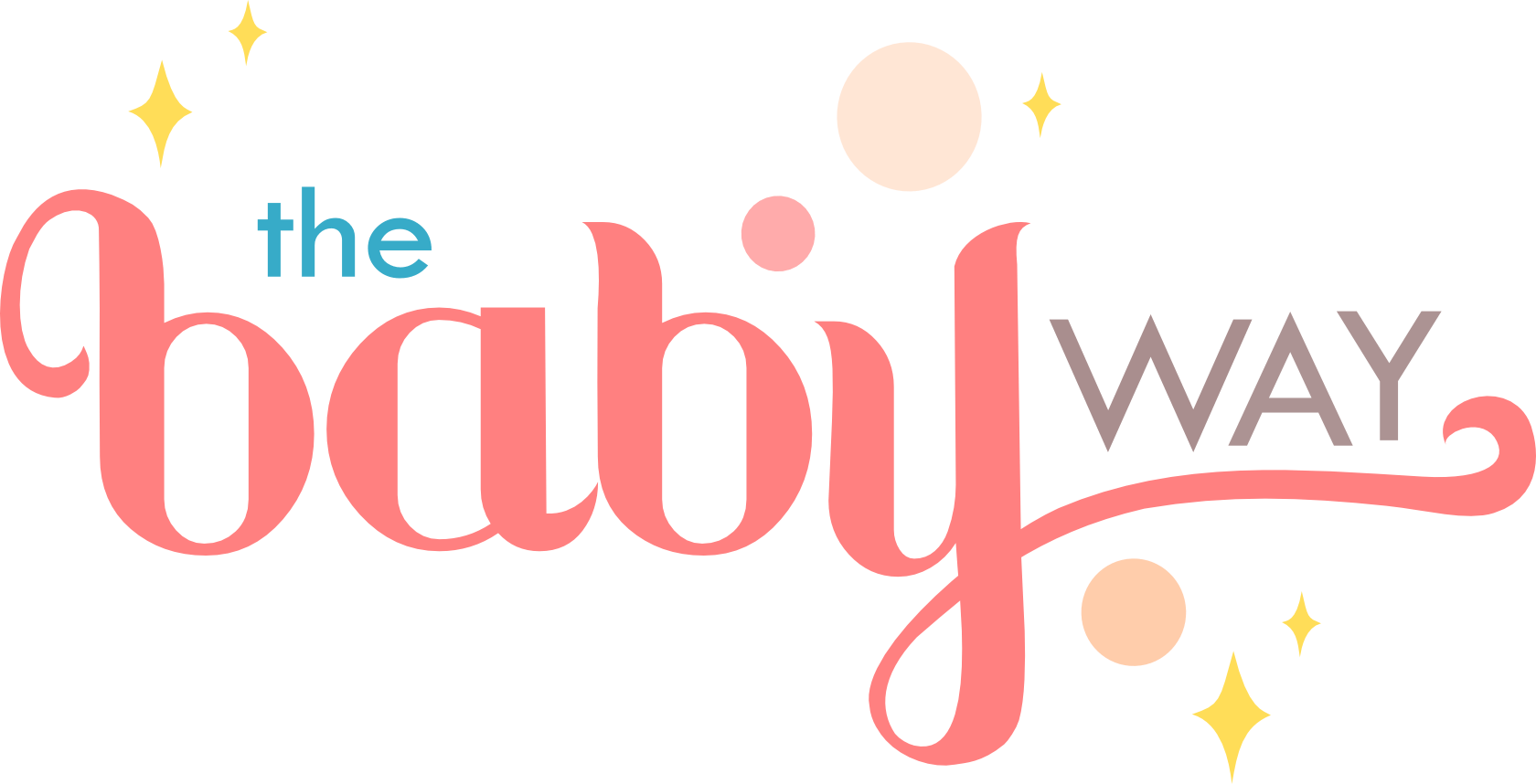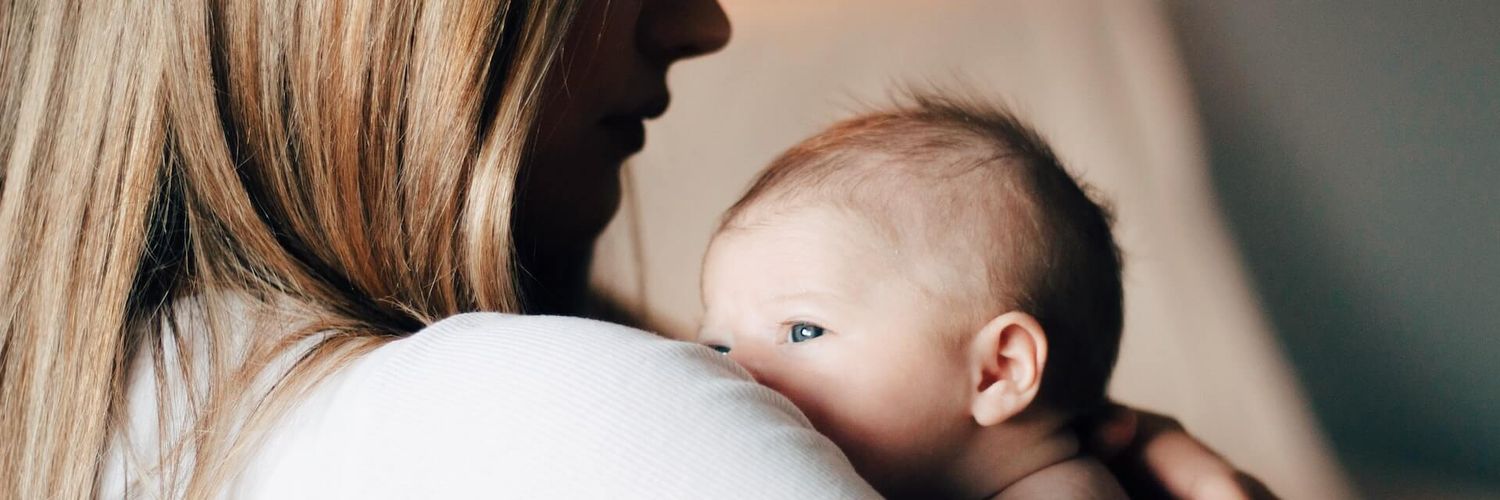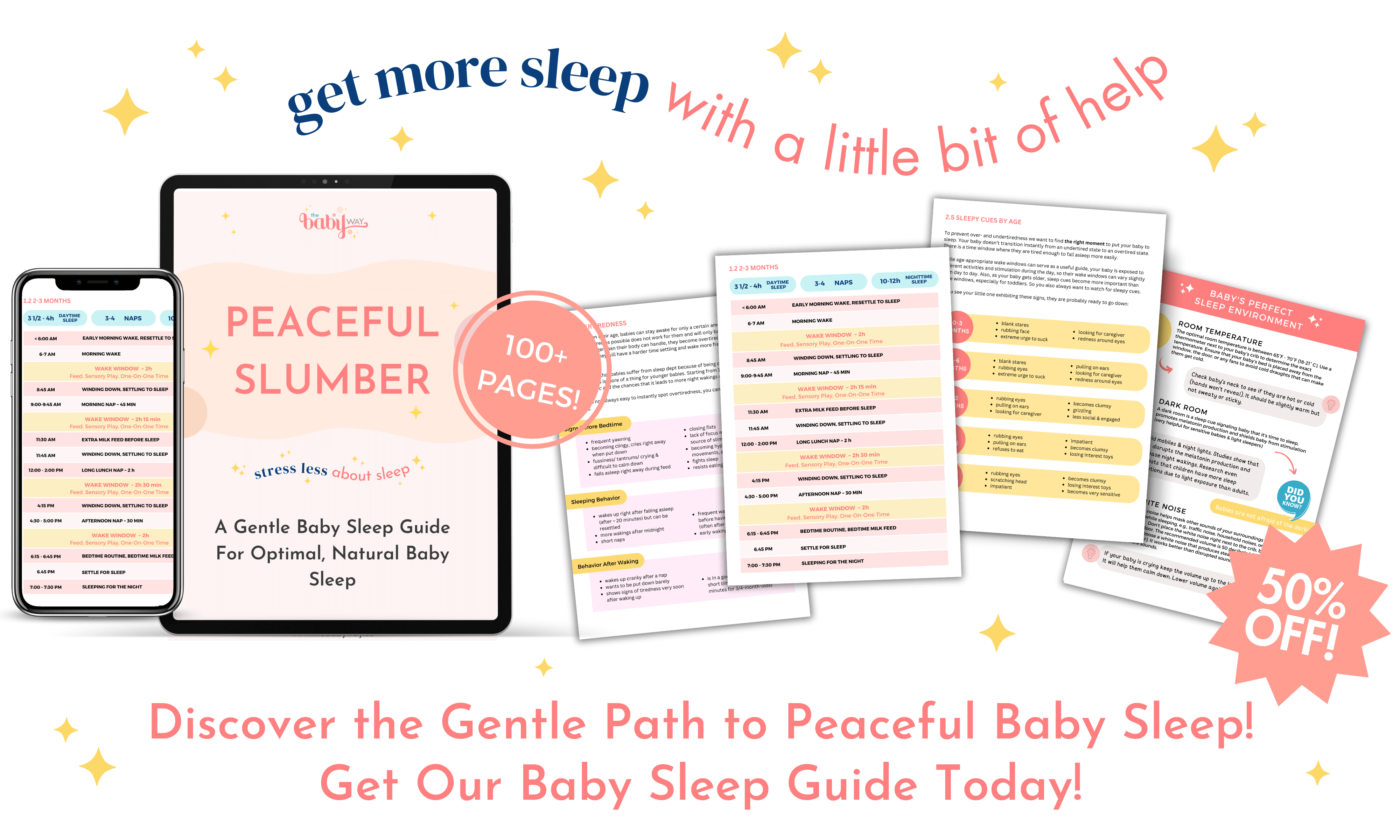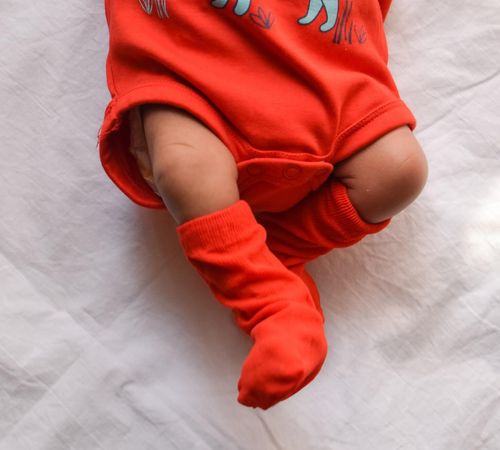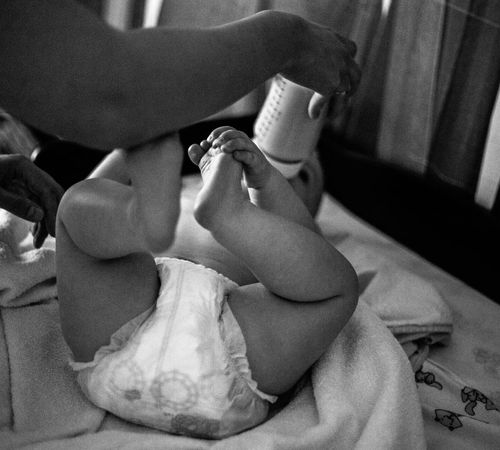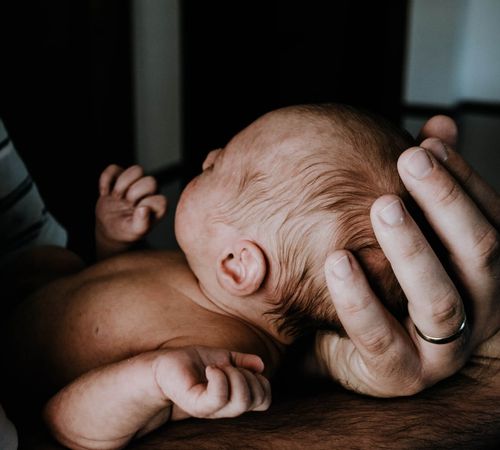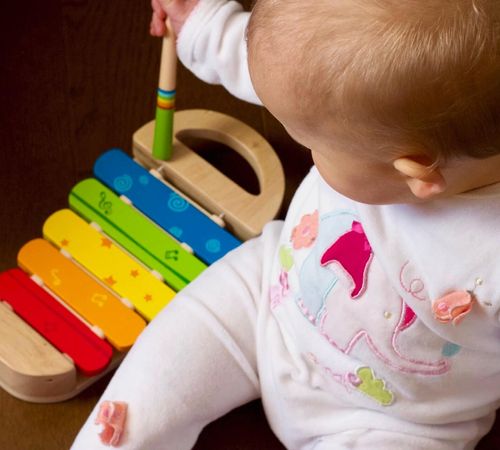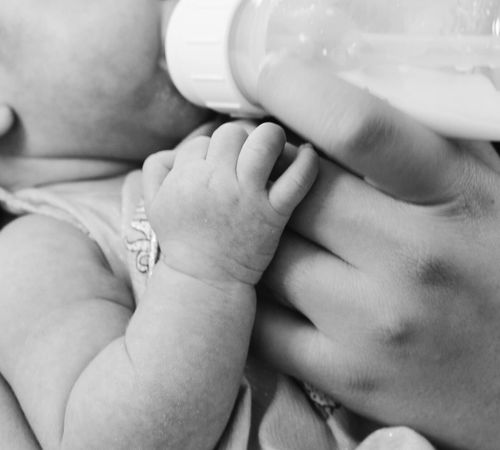Sleep training is a hot topic among parents, and many wonder if it is really necessary to get their baby to sleep. Some parents believe or are led to believe that their baby will never sleep through the night if they don't intervene with sleep training early enough. In this article, we will discuss what will really happen if you don't sleep train.
Before I became a mom, I had no clue about normal infant sleep or baby sleep training. I was naive enough to think that babies sleep…just like that.
Man, was I wrong.
After the first newborn days wore off, we began to struggle with our first 'sleep problems'. Our little one would wake the minute you put her down, and she would only have short naps.
What was going on?!
So when I began to comb through the internet, I was confronted with sleep training. Everywhere I read that babies needed to learn to self-soothe in order to achieve independent sleep. But the thought of using a sleep training method that included separation or leaving your baby to cry alone just felt wrong in my gut.
On the other hand, I was afraid my baby would never sleep. And I believe I am not the only parent who anxiously wonders what will happen if you choose not to sleep train at all. For the first couple of months, I really struggled with the question of whether to sleep train or not. I wondered what would happen if I didn't sleep train. Until I found out myself…
So for every parent who is trying to answer this question, let's talk real business. Let's find out what happens when you choose not to sleep train your baby.
This article covers:
-
1. What Is Sleep Training?
2. Sleep Training vs. Sleep Hygiene
3. How To Know If Sleep Training Is NOT The Right Fit For Me
4. How To Know If Sleep Training Is The Right Fit For My Baby
5. There Is Also A Thing Called Normal Baby Sleep
6. What Happens If You Don't Sleep Train?
7. The Alternatives To Conventional Sleep Training
8. Conclusion
1. What Is Sleep Training?
There is no official definition of sleep training. In general, sleep training is a term used to describe a set of methods and techniques used to help infants and young children learn to fall asleep and stay asleep through the night. It typically involves teaching the child to self-soothe or self-settle to sleep without any parental help or parental presence.
While it can be difficult to determine what officially counts as sleep training and what doesn't, most sleep training techniques use separation-based methods or methods that instruct you to leave your baby to cry for a certain amount of time. These are the most common ways to teach your baby to sleep on their own. The controlled crying, cry-it-out, or the Ferber method are widely known techniques for sleep training.
2. Sleep Training vs. Sleep Hygiene
Now, it can be difficult for some parents to really determine what sleep training is and what is not. Some parents feel very strongly about one or another, and sleep training can mean different things to different people.
Is using a schedule sleep training?
Is crying in your arms sleep training?
I can only tell you what sleep training means to me.
For me (and many out there), sleep training is all the methods that tell you not to respond to your baby or to respond differently than you would during the day.
If you leave your crying baby alone for 10 minutes, in my eyes, that's sleep training. If you sit next to your baby's crib and are not allowed to pick them up, touch them or talk to them, it's sleep training.
In my opinion, leaving your baby alone in a room to cry is not the same as weaning them from feeding to sleep, where they also might cry, but you try to soothe them in different ways.
For me, crying is not the problem. If you have a baby (which I assume you do), you know that BABIES CRY A LOT. For me, the difficulty lies in not responding to your baby's cries.
A bedtime routine, sleep schedule, wake windows, and or setting up an ideal sleep environment is not sleep training in my eyes. All these things are often considered healthy sleep habits or sleep hygiene.
3. How To Know If Sleep Training Is NOT The Right Fit For Me
I just want to quickly point out that I am in no position to judge anyone for their decision to sleep train or not. This is a personal matter, and everyone should do what feels best for them and their family.
That being said, sleep training was never something that felt right for me. I just somehow felt it in my gut that it was not the solution I was looking for. I just couldn't listen to my baby's cries without doing anything.
But that is me.
Judge me all you want, but I was the kind of mom that would stick out her breast whenever her baby was fussing. Yep, that's me.
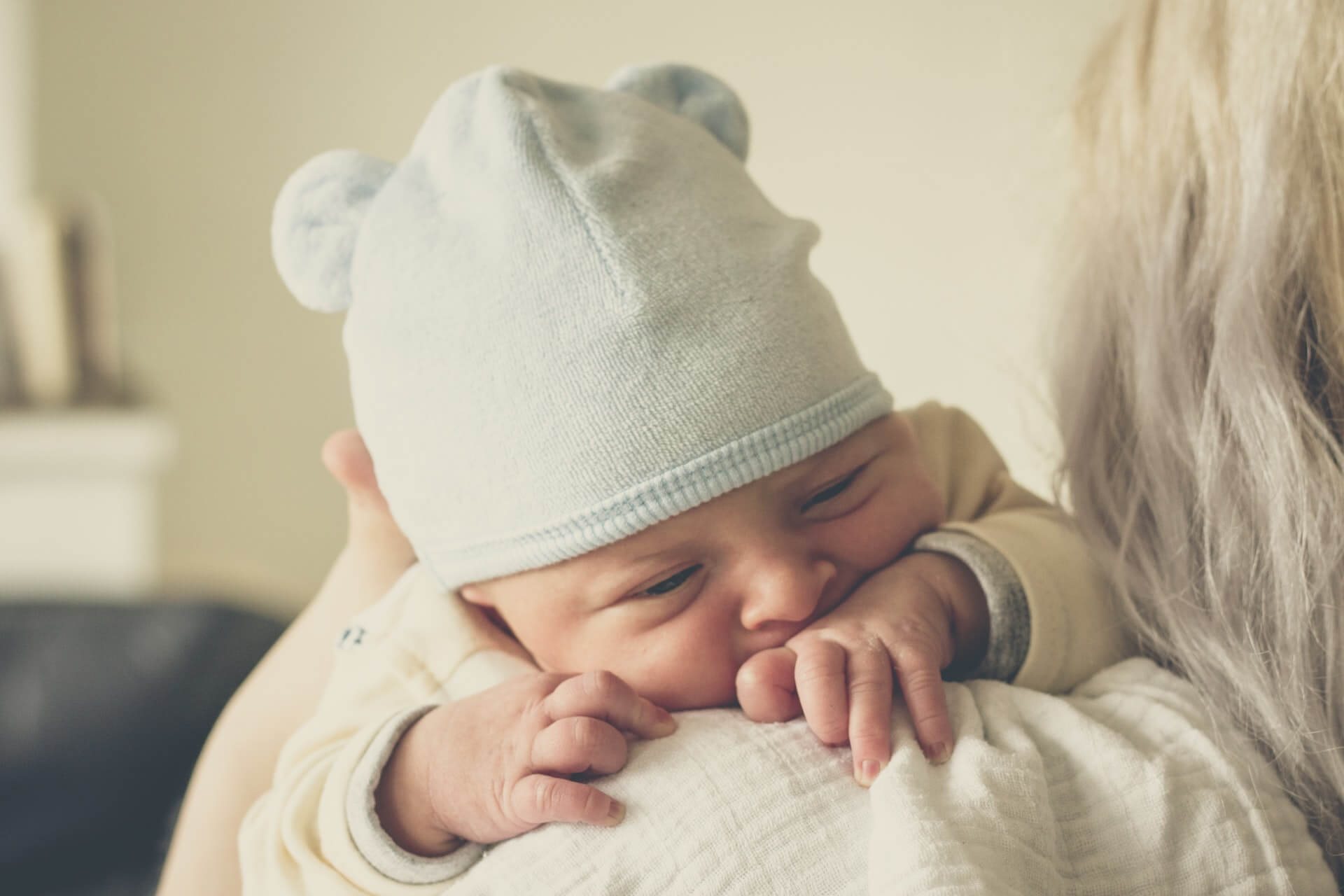
Since becoming a mom, I have done so much personal soul-searching that I realized that crying is such a trigger for me. If there is something that can spike my cortisol levels, then it's a baby crying. I believe that all mothers have a biological urge to answer to their baby's cries.
But I also feel that, for some reason, I struggled more with baby's cries than maybe someone else.
And if you feel the way that I did but are also kind of pressured into sleep training because you fear all hell will break loose, then yes, sleep training might not be the right fit for you. And that's ok.
4. How To Know If Sleep Training Is The Right Fit For My Baby
We all hear the apparent success stories of sleep-trained babies. But it would be only fair to mention the fair share of babies for who sleep training doesn't work and probably never will.
And this is also something you need to consider.
If a sleep consultant tells you not to look into your baby's eyes, you better run!
Babies have different temperaments. Some are easygoing and have no problem switching from one sleep space to another. Others are stage-4 clingers (also known as my son) that need your breath in your face all night long.
Will sleep training work on easygoing babies? Probably.
Will sleep training work on high-need babies or highly sensitive children? Probably not.
It is just a fact that you cannot improve your baby's sleep without considering their temperament. For example, I handled my son's sleep differently than my daughter's. They are very different in temperament, and what worked for my girl did not work for my son.
Another very important thing to consider is that there might be other underlying causes that lead to your baby's poor sleep. For example, an underlying health issue can be the root cause of a baby's increasingly fragmented sleep.
On the other hand, developmental milestones can also interfere with your baby's sleep. Separation anxiety, sleep regressions, and cognitive development can all have an impact on sleep.
And what are you going to do? Tell your baby's brain not to grow? Please don't.
5. There Is Also A Thing Called Normal Baby Sleep
When I became a mom I had no idea what normal baby sleep looked like.
I didn't know that a million other babies would rather sleep in their parent's arms than in the crib.
I didn't know that it was normal that babies had short naps.
I didn't really have a clue what I could and should expect from my baby.
And many sleep training programs don't take this into account either. It's often ignored that interrupted nighttime sleep for at least the first year is actually biologically normal. It's not often discussed that night wakings are a protective measure.
Your baby's sleep skills are not a reflection of your parenting skills.
Instead, normal baby sleep behavior is often falsely advertised as a result of spoiling a baby, using sleep associations like rocking or nursing to sleep. Sometimes parents are even told that their baby is not getting enough restorative sleep.
I mean, you basically can tell by looking at your baby if they had enough sleep or not. If your baby is happy and content throughout the day, it means that they are getting enough sleep even if they woke five times at night.
My baby had the audacity to smile right into my face in the morning just as if she didn't wake up 100 times during the night.
So before you set your expectations too high, it is important to understand what normal baby sleep actually looks like. Just a hint: expecting a 12-week old baby to sleep 12 hours is not normal.
6. What Happens If You Don't Sleep Train?
Ok, so let's cut to the chase: what happens if you don't sleep train?
Here is your answer: NOTHING.
I assume you are here because you have a tendency not to sleep train, so I hope this gives you some peace of mind.
Nothing will happen if you don't sleep train. Your baby will eventually sleep. Maybe not with 6 months or 12 months. There is really no way of knowing when your baby will sleep on their own. As they grow, they will develop their own sleep pattern. It can happen from one day to another. And it will happen, even if you don't sleep train.
Sleeping through the night is a developmental milestone that every baby reaches at a different age. And even if you choose not to intervene with sleep training, your little one will get there.
7. The Alternatives To Conventional Sleep Training
If conventional sleep training is not for you, it doesn't mean that there is nothing you can do to improve your baby's sleep.
You also don't have to wait it out.
There are many different ways you can improve your baby's sleep. Introducing a bedtime routine, using age-appropriate wake windows, and gently introducing new sleep associations are only a few means that can improve your baby's sleep.
And they have nothing to do with sleep training.
8. Conclusion
Sometimes parents are exposed to so many different opinions and information out there that they forget to trust their instinct. But the thing is, there is not one formula that works for every baby.
This is also not about choosing one side or another. It's about doing what feels right for you and your family.
Before you start to implement something because someone out there tells you to, always ask yourself this:
"Is my current situation really bothering me?"
I know so many parents who are totally ok with night wakings or helping their baby fall asleep but are so confused if what they are doing is wrong.
If you already feel hesitant about sleep training, then you don't need to listen to more advice out there. Instead, you should call it a day and trust your decision.
Whether you sleep train your baby or not, every parent will experience challenges throughout the first years of their child's life. That's just how babies work.
